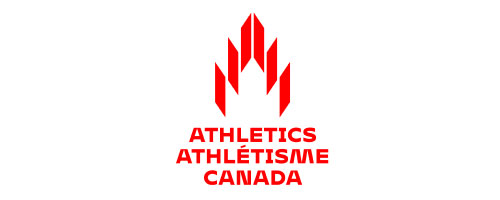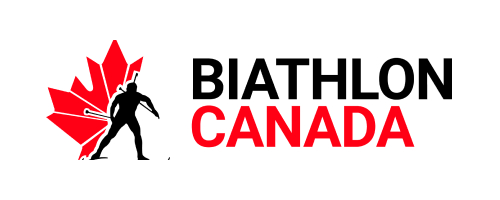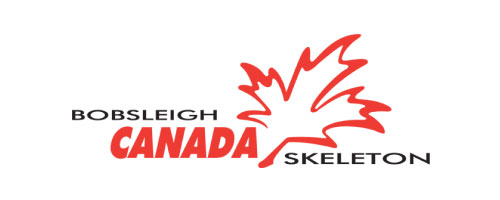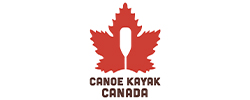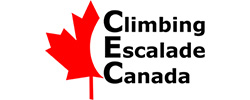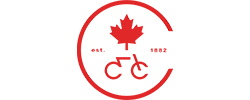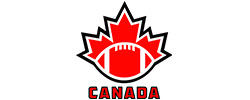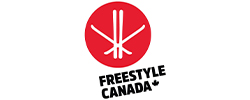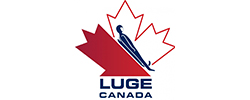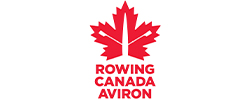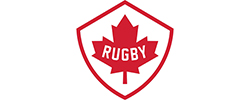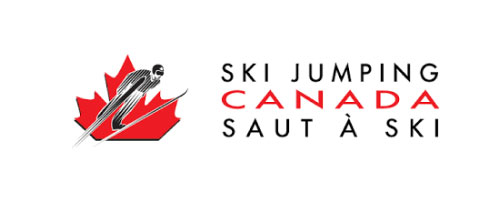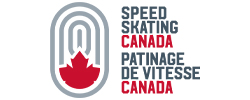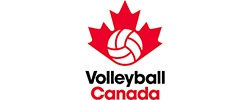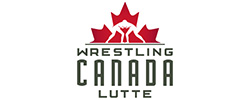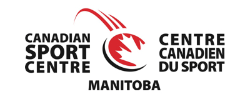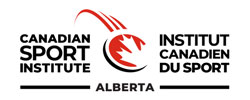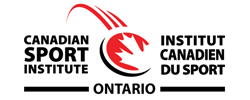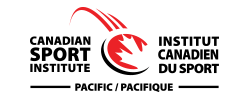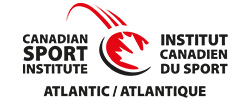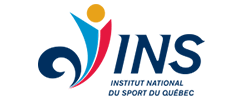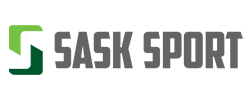Leaders
Strength Test
male Athletes
| 14-18
8 Athletes
Score: 300
All Time Leader (Multi)
female Athletes
| 14-18
Macy M
Score: 300
All Time Leader (2023)
male Athletes
| 19+
25 Athletes
Score: 300
All Time Leader (Multi)
female Athletes
| 19+
Bailey D.
Score: 244
All Time Leader (2018)
Leaders
Running Sprint
male Athletes
| 14-18
Andrew P.
Score: 3.62
All Time Leader (2024)
female Athletes
| 14-18
Jordan B.
Score: 4.05
All Time Leader (2017)
male Athletes
| 19+
Kenneth W.
Score: 3.66
All Time Leader (2025)
female Athletes
| 19+
Clarnika-Stella J.G.
Score: 3.96
All Time Leader (2025)
Leaders
Vertical Jump
male Athletes
| 14-18
Isaac C.
Score: 110.7
All Time Leader (2024)
female Athletes
| 14-18
Sofia VV
Score: 83.3
All Time Leader (2025)
male Athletes
| 19+
Aziz D.
Score: 109.2
All Time Leader (2025)
female Athletes
| 19+
Paige B.
Score: 89.9
All Time Leader (2022)
Leaders
Shuttle Run
male Athletes
| 14-18
Joshua Z.
Score: 16.03
All Time Leader (2017)
female Athletes
| 14-18
Brooke M.
Score: 13.04
All Time Leader (2017)
male Athletes
| 19+
Joshua Z.
Score: 16.03
All Time Leader (2017 -16 years old)
female Athletes
| 19+
Stephanie T.
Score: 13.07
All Time Leader (2018)
LePage
Pascual
Jensen
Orban
Lavigne
Siemachesky
Mitchell
Wasteneys
Have fun with the process and find joy in the mundane while you can.
Thénault
Genest
Blake
Sommer
Fontaine
Evelyn
Bray-Lougheed
Smith
Villani
Jones
Dent
Norsten
Boyle
Bermudez
Daniels
Scurfield
About
What is RBC Training Ground?
RBC Training Ground is a talent identification and athlete funding program designed to find young athletes with Olympic potential, and provide them with the resources they need to achieve their podium dreams.
With the belief that high performance sports should be accessible to all athletes that are talented, qualified and have the will to compete, this program travels the country searching for athletes between the ages of 14 and 25 that will fuel the Canadian Olympic pipeline.
Introducing the 2025 RBC Future Olympians
We are proud to officially announce our roster of 35 RBC Future Olympians, who will receive access to top coaches, funding, and mentorship as they strive to turn their Olympic dreams into reality over the coming years. Congratulations!
Testing
Athletes are assessed using basic tests that indicate speed, strength, power and endurance capabilities.
National Sport Organizations (NSO’s) use combinations of these test results to identify skills that may translate to strong potential in their respective sport. Each sport requires different physical abilities and skills, and therefore performance benchmarks vary by NSO. Field based assessment results must be viewed within the context of the requirements of the sport, the characteristics of the athlete, and the stage of their development.
Sign up for free and compete an event near you.
Download PDF for virtual testing instructions.
Download PDF for virtual testing instructions.
Download PDF for virtual testing instructions.
Learn More
How has RBC committed to fueling the Olympic movement in Canada?
The Olympic Games represent excellence, teamwork, diversity and commitment —the same values that hold true for RBC, its employees, clients and communities. That connection is a major reason why RBC has been Team Canada’s longest-standing corporate partner since 1947. This commitment to the Olympic movement is demonstrated through the RBC Olympians program, as well as through RBC’s support for the next generation of Olympic hopefuls.
Bring a Friend, unlock your potential… and win!
Join our referral contest for a chance to win big. Simply invite your friends to an RBC Training Ground event, to be entered into a draw for a Team Canada Shopping Spree.
* Limit of one draw entry per person, regardless of the number of athlete referrals submitted.
Bring a group of 25, and win a visit from an RBC Olympian
RBC Olympian appearance will be honoured within one year, once the Olympian has been confirmed.
• We’ll look to do a visit in person, but virtual visits will be explored if Olympian availabilities are limited.
• While supplies last.
• RBC Training Ground reserves the right to provide a pool of Olympians to choose from.
• All members of the group are automatically entered into the Team Canada Shopping Spree.
How do I/does my child compare against the performance benchmarks?
Each sport requires different skills and physical abilities with performance benchmarks that are dictated by our National Sport Organization partners, taking age and gender into account. Athletes that participate in RBC Training Ground will receive a custom scorecard after they participate, which will help them compare their physical performance against our benchmarks.
Why is the age range 14 to 25 years?
The age range of 14 to 25 years aligns with long-term athlete development stages and the Canadian Sport for Life program. This age range allows us to capture those with early and late-stage Olympic potential. The probability of identifying an athlete below or above these age ranges, within our current RBC Training Ground partner sports, is very small. Athletes must be at least 14 years old on the date that they try out and must not be older than 25 at the event.
How do I/does my child participate?
Anyone aged 14-25 (on the date they try out) can participate by signing up for a local qualifying event.
Participants must first register with their basic information online, complete a more detailed Athlete Profile, and select the event they wish to attend.
By attending events in-person, athletes will also be able to meet RBC Olympians, chat with on-site NSO representatives and meet fellow elite athletes. However, if an athlete cannot compete in-person due to a scheduling conflict they may participate in the virtual qualifying option for a chance to be considered. Regardless of the testing format an athlete participates in (in-person or virtual), results will be weighed equally.
Sign up today!
How does virtual qualifying work?
After registering for RBC Training Ground, athletes can select “Virtual Testing” from the drop-down list of RBC Training Ground events. Upon completion of their Athlete Bio, they will receive detailed instructions for how to complete our athletic tests remotely using minimal equipment. Exercises include a Shuttle Run, Sprint Test and Vertical Jump. Test scores will be submitted to the athlete’s profile along with a video recording as proof of completion. For more information, please contact RBC Training Ground.
What happens after I compete virtually or at a qualifying event?
After your event, your results and registration information will be evaluated by our participating NSOs and you may be invited to complete second-phase testing with one or more of the sports. This phase of testing will look different depending on which sports are interested in your abilities, and may require you to travel to a location outside of your city of residence or where you competed in the qualifying phase.
Which sports are recruiting new athletes through RBC Training Ground?
There are 15 National Sport Organizations (NSO) recruiting athletes through RBC Training Ground in 2026:
- Athletics Canada
- Biathlon Canada
- Bobsleigh Canada Skeleton
- Canoe Kayak Canada
- Climbing Canada
- Cycling Canada
- Football (Flag) Canada
- Freestyle Canada
- Luge Canada
- Rowing Canada
- Rugby Canada
- Ski Jumping Canada
- Speed Skating Canada
- Volleyball Canada
- Wrestling Canada
Does RBC Training Ground visit all provinces and major cities across the country?
RBC Training Ground is committed to giving athletes across Canada the opportunity to participate, knowing there may be undiscovered and talented athletes around the country. Qualifying event cities are chosen to give in-person testing opportunities to as many Canadian athletes as possible. However, we recognize there are still a number of factors that may limit an athlete’s ability to attend one of the events, which is why we’re proud to be offering a virtual testing option as a safe, accessible, equally-as-credible alternative option once again.
What is the National Final?
Based on the results of RBC Training Ground qualifying (and virtual) testing, and the subsequent sport-specific testing (if applicable), 100 of the top athletes as nominated by our NSO partners will be invited to the National Final. This all-expense paid trip will represent the final stage of testing prior to selection of RBC ‘Future Olympians’ – the top 35 athletes who are chosen for continued support through the program.
The National Final will be hosted in the fall of 2026. Those who are invited will be contacted directly.
How are athletes selected to attend the RBC Training Ground National Final?
Coaches and talent identification representatives from the participating NSOs will select athletes based on a combination of athlete performances – qualifying event or virtual testing results – sport history, and second-phase testing sessions. NSOs are looking for athletes who met or exceeded the predetermined benchmarks set by each of the sports.
What happens after the National Final?
The RBC Training Ground team will reach out to all athletes who attend the National Final with more information after the event. 35 athletes from across the country will be selected as RBC ‘Future Olympians’. The athlete’s NSO will receive funding assistance that will be used towards each RBC Future Olympian’s travel, competition, training camp expenses, coaching, nutrition, and other sport-related costs, at the sole discretion of the NSO. These funds will be administered by the Canadian Olympic Foundation to the applicable NSO directly.
Is RBC Training Ground open to Para athletes?
Currently, we are focused on finding the next generation of athletes with Olympic potential. The Canadian Paralympic Committee is a separate organization that focuses on Para sport which has different requirements for their athletes based on the different classifications and ability categories within each discipline.
How many athletes are tested?
Thousands of Canadians across the country participate in RBC Training Ground each year. We have tested over 20,000 athletes through the first ten years of the program.
Do I have to try out at an RBC Training Ground event in the city of my residence?
Although most do, you can try out at any qualifier in Canada that is the most convenient, regardless of where you live.
Can non-Canadian athletes participate in RBC Training Ground Events?
Any athlete aged between 14-25 years old can participate in an RBC Training Ground Qualifying event, regardless of citizenship status or permanent residency. However, non-Canadian athletes are not eligible to participate in the RBC Training Ground National Final event and are not eligible for recruitment and to be matched with a National Sport Organization.
RBC Training Ground Qualifying events take place across Canada and provide athletes with the opportunity to network with peers, RBC Olympians, and coaches onsite. Athletes will also receive a custom scorecard after they participate, which will help them compare their physical performance against our benchmarks, and potentially identify a new sport they excel in.
Why aren’t non-Canadians eligible to be recruited and matched with a National Sport Organization or attend the National Final?
How many times can I try out for RBC Training Ground?
Athletes can participate one time per calendar year either at an in-person event or virtually. If you’re not selected as an RBC Future Olympian after the National Final, we encourage you to come back and try out again, next season.
What are other ways RBC Training Ground has helped enable inclusion in sport in the past?
What is the RBC Training Ground Athlete Accelerator?
The RBC Training Ground Athlete Accelerator is a new funding and support opportunity for RBC Training Ground participants who are currently facing financial barriers to high-performance sport.
Applications will open during the qualifying season in 2026, stay tuned for more updates in the new year. For any questions, contact RBC Training Ground at rbctrainingground@olympic.ca
How can athletes apply/when is more information expected to be released about the RBC Training Ground Athlete Accelerator?
Applications will open in, 2026 following the first RBC Training Ground qualifying event. Stay tuned for more updates in the new year. For any questions, contact RBC Training Ground at rbctrainingground@olympic.ca.
What is Women’s Hour?
Women’s Hour is an optional, scheduled time slot at all RBC Training Ground qualifying events reserved for women participants.
How can people sign up for Women’s Hour?
Athletes can opt into Women’s Hour during the regular registration process on RBCTrainingGround.ca
Will the staff/volunteers also be all-women?
While some staff and volunteers present during Women’s Hour will not identify as women due to availability limitations, the anthropometric station (where athletes take height/weight/wingspan measurements) will be staffed exclusively by women .
For further questions about Women’s Hour, please contact RBC Training Ground at rbctrainingground@olympic.ca
How many people can sign up for Women’s Hour?
What is the RBC Training Ground Inclusion Council?
The RBC Training Ground Inclusion Council is a group of appointed individuals including representatives from the Canadian Olympic Committee, RBC, National Sport Organizations (NSO), former athletes and other industry leaders focused on inclusion who will help further advance RBC Training Ground’s commitment to providing fair and inclusive opportunities.
What will the RBC Training Ground Inclusion Council be responsible for?
The RBC Training Ground Inclusion Council will inform decision-making around new and existing initiatives to help create more fair and inclusive opportunities in sport through RBC Training Ground.
2026 Partner National Sport Organizations
Providing second phase sport-specific testing to the selected athletes.
Canadian Olympic and Paralympic Sport Institute / Sport Centre Network
Serving as the official testing facilitation partner for RBC Training Ground across Canada.


